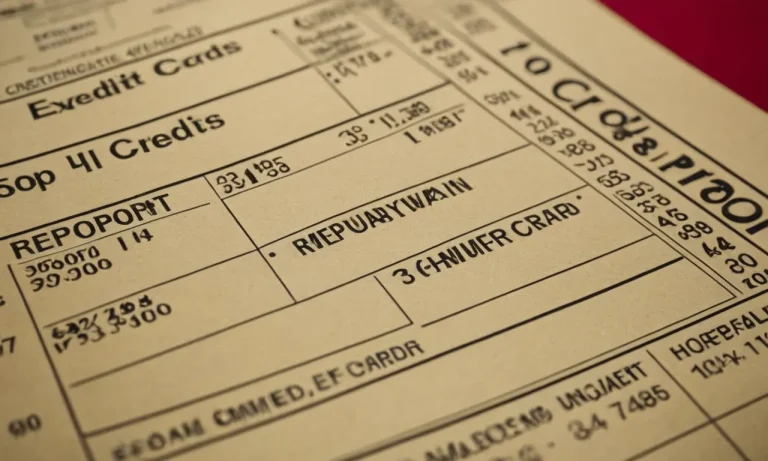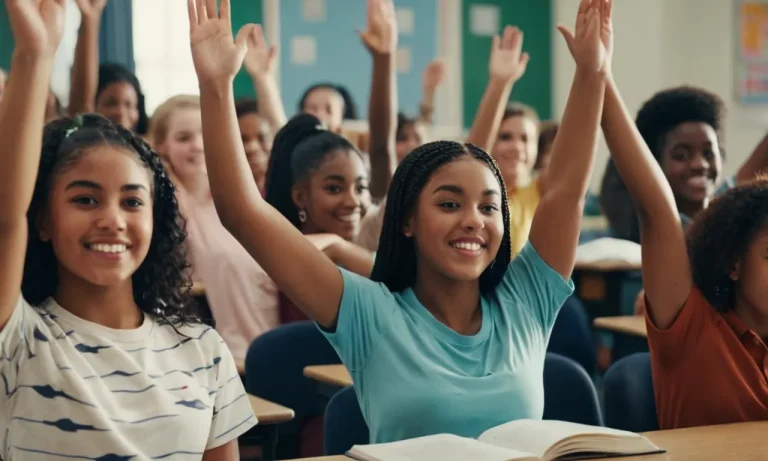Failing classes in high school can be a daunting experience, leaving students and parents alike with a sense of uncertainty and concern about the future. Whether it’s due to academic struggles, personal challenges, or a combination of factors, understanding the implications of failing classes is crucial for making informed decisions.
If you’re short on time, here’s a quick answer to your question: The number of classes you can fail in high school varies depending on the specific requirements of your school district or state. Generally, students are allowed to fail a certain number of credits before facing consequences such as being held back a grade or being ineligible for graduation.
In this comprehensive article, we’ll delve into the details of how many classes you can fail in high school, the potential consequences, and strategies for getting back on track. We’ll explore the policies and regulations governing academic performance, as well as the support systems available to help students succeed.
Understanding High School Credit Requirements
As you navigate the journey through high school, it’s crucial to understand the credit requirements that determine your path to graduation. These requirements serve as a roadmap, ensuring you acquire the necessary knowledge and skills to succeed in life after high school.
Let’s dive into the key aspects of high school credit requirements.
Graduation Requirements
Each state and school district has its own set of graduation requirements that students must fulfill to earn their high school diploma. While these requirements may vary, they generally include a minimum number of credits in core subjects like English, mathematics, science, and social studies.
For example, according to the Education Week, many states require around 20-24 total credits for graduation. Failing to meet these requirements can result in delayed graduation or the need to make up the missing credits.
Core vs. Elective Courses
High school courses are typically divided into two categories: core courses and elective courses. Core courses are mandatory subjects that all students must take, such as English, math, science, and social studies.
These courses form the foundation of your education and are essential for meeting graduation requirements. On the other hand, elective courses allow you to explore your interests and passions, ranging from arts and music to computer science and foreign languages.
While elective courses are not always required for graduation, they can enrich your educational experience and help you develop diverse skills.
Minimum Grade Point Average (GPA)
In addition to credit requirements, many high schools also have a minimum Grade Point Average (GPA) that students must maintain to graduate. The GPA is a numerical representation of your academic performance, calculated based on the grades you earn in each course.
A higher GPA indicates better academic achievement. Some schools may have a minimum GPA requirement, such as 2.0 or higher, to ensure students are meeting academic standards. Failing to maintain the required GPA could result in academic probation or even the inability to graduate on time.
According to the National Center for Education Statistics, the average GPA for high school graduates in the United States is around 3.0 or higher.
Remember, understanding and meeting these credit requirements is crucial for your academic success and future endeavors. Don’t hesitate to seek guidance from your school counselors or academic advisors if you have any questions or concerns about meeting the necessary requirements.
With dedication and hard work, you can navigate the high school journey successfully and achieve your goals. 😊
Consequences of Failing Classes
Failing classes in high school can have serious consequences that can impact a student’s academic journey and future prospects. It’s crucial to understand the potential repercussions and take proactive measures to avoid falling behind. Here are some common consequences of failing classes:
Academic Probation
Many schools have policies that place students on academic probation if they fail a certain number of classes or if their grade point average (GPA) falls below a specific threshold. Academic probation is essentially a warning that the student’s academic performance is unsatisfactory and needs improvement.
During this period, students may face restrictions, such as limitations on extracurricular activities or mandatory tutoring sessions. Failing to meet the probation requirements can lead to further disciplinary actions or even dismissal from the school.
Grade Retention
In some cases, failing too many classes can result in grade retention, meaning the student will have to repeat the same grade level the following year. This decision is often made to ensure that students have a solid foundation in the subjects they struggled with before moving on to more advanced coursework.
However, grade retention can have emotional and social consequences for the student, as they may feel embarrassed or discouraged by being separated from their peer group. According to a study by the Education Week, retained students are more likely to drop out of high school, with a dropout rate of around 25%.
Ineligibility for Graduation
One of the most significant consequences of failing classes is the potential inability to graduate from high school. Most schools have specific credit requirements that students must meet in order to receive their high school diploma.
Failing too many classes can prevent students from accumulating the necessary credits, making them ineligible for graduation. This can have long-lasting effects on a student’s future opportunities, as a high school diploma is often a prerequisite for many jobs and higher education programs.
Impact on College Admissions
For students aspiring to attend college or university, failing classes in high school can significantly impact their chances of admission. College admissions committees closely examine applicants’ academic records, including their grades and course rigor.
Failing classes can be a red flag that raises concerns about a student’s ability to handle the academic demands of college-level coursework. It can also affect their eligibility for scholarships and financial aid opportunities.
According to a report by the National Association for College Admission Counseling, 81% of colleges consider grades in college preparatory courses to be of “considerable importance” in the admissions process.
To avoid these potential consequences, it’s essential for students to prioritize their academic performance, seek help when needed, and develop effective study habits. Schools, teachers, and parents should also work together to provide support systems and interventions for struggling students, ensuring they have the resources and guidance necessary to succeed academically.
Strategies for Recovering from Failed Classes
Failing a class in high school can feel discouraging, but it doesn’t have to derail your academic progress. There are several strategies you can pursue to recover the lost credits and get back on track towards graduation. The key is to act promptly and take advantage of the available resources.
Credit Recovery Programs
Many high schools offer credit recovery programs, which provide an opportunity to retake a failed course in a condensed format. These programs are often self-paced and allow you to focus on the specific units or concepts you struggled with.
According to a study by the American Institutes for Research, students who participated in credit recovery programs had a higher likelihood of graduating on time. Some schools even offer online credit recovery options, providing added flexibility.
Summer School
Summer school is a popular option for students who need to make up credits. It allows you to retake a course during the summer break, freeing up your schedule during the regular school year. Summer classes are typically more intensive, covering the same material in a shorter timeframe.
This can be challenging, but it also means you can quickly recover the credits and move on. According to the National Center for Education Statistics, over 40% of high school students attend summer school at some point.
Online Courses
With the rise of online education, many high schools now offer virtual courses that can be taken alongside regular classes or during the summer. Online courses provide flexibility and self-paced learning, allowing you to work at your own pace and on your own schedule.
Reputable online course providers like Edgenuity and Florida Virtual School are widely recognized and can help you recover credits.
Tutoring and Academic Support
Sometimes, the key to recovering from a failed class is getting extra support and guidance. Many schools offer tutoring services or academic support centers where you can work one-on-one with a teacher or peer tutor.
This personalized attention can help you better understand the material and develop effective study strategies. Don’t be afraid to ask for help – studies show that students who seek tutoring are more likely to improve their grades and pass their courses. 😊
No matter which strategy you choose, the important thing is to stay motivated and focused on your goal. With hard work and determination, you can recover from failed classes and get back on track towards graduation.
Don’t let a temporary setback define your academic journey – embrace the opportunity to learn from your mistakes and emerge stronger. 👏
Preventing Future Class Failures
Time Management Techniques
Effective time management is crucial for academic success. Start by creating a study schedule that allocates dedicated time for each class and assignment. Break down larger tasks into smaller, manageable chunks to avoid feeling overwhelmed.
Apps like MyStudyLife can help you stay organized and on track. Additionally, learn to prioritize tasks based on their importance and deadlines, ensuring you don’t fall behind. Remember, procrastination is the enemy of academic achievement, so develop the habit of tackling tasks promptly.
Study Skills and Habits
Develop effective study habits to maximize your learning potential. Start by finding a distraction-free environment conducive to focused studying. Experiment with different techniques like active reading, note-taking, or creating visual aids like mind maps and flashcards.
Cornell College offers excellent resources on developing study skills. Additionally, consider joining or forming study groups, as collaborative learning can reinforce concepts and provide fresh perspectives. Consistency is key; make studying a regular habit, not just a last-minute cramming session.
Seeking Help Early
Don’t hesitate to seek help when you’re struggling with a subject. Attend tutoring sessions, visit your school’s academic support center, or ask your teachers for extra assistance during office hours. Many schools offer free tutoring services, so take advantage of these resources.
According to a study by the National Center for Education Statistics, students who received tutoring showed significant improvements in their academic performance. 🎉 Asking for help early on can prevent minor hiccups from turning into major roadblocks.
Communicating with Teachers and Counselors
Maintain open communication with your teachers and school counselors. They can provide valuable insights, identify areas of concern, and suggest strategies for improvement. Don’t be afraid to ask questions or express any difficulties you’re facing.
Many teachers are more than happy to provide extra support or clarification. 😊 School counselors can also assist with course selection, time management, and overall academic planning. The American School Counselor Association emphasizes the importance of this collaboration.
By fostering a strong rapport with your support system, you’ll be better equipped to overcome academic challenges and stay on track.
Conclusion
Failing classes in high school can be a challenging experience, but it doesn’t have to define your academic journey. By understanding the credit requirements, potential consequences, and available support systems, you can take proactive steps to recover from failed classes and prevent future academic setbacks.
Remember, every student’s situation is unique, and it’s essential to communicate openly with school administrators, counselors, and teachers to develop a personalized plan for success. With determination, hard work, and the right resources, you can overcome obstacles and achieve your academic goals, setting yourself up for a bright future beyond high school.






